When people think of addiction treatment and ongoing rehab, it is not uncommon for 12-step programs to come to mind. These programs have been a staple element of addiction rehab and ongoing aftercare support for decades. All 12 step programs function with the primary goal of providing those in recovery with structure, solidarity, and direction as they attempt to navigate their new, substance free life. What many do not realize is that there are many different kinds of 12 step programs available to serve almost any need.
What Are the Different Kinds of 12 Step Meetings?
There are at least one (often two or three) 12-step support groups for virtually every type of addiction, compulsivity, or alteration in behavior. The most prominent example most are familiar with is Alcoholics Anonymous or AA. Alcoholics Anonymous began in 1935 as a meeting between two gentlemen (both recovering alcoholics) in Akron, Ohio. Now, eighty-five years later, the teachings of AA have spread across the nation and all over the world. But Alcoholics Anonymous is not the only 12 step support program available for those in recovery. In terms of alcohol-related addictions, one can also look into ACOA or adult children of alcoholics or Al-Anon/Al-Alateen, which are designed to meet the support needs of friends and family members of alcoholics.
The 12 step program design can also be found in support groups that assist those struggling with drug addiction. For example, if you are in recovery from addiction, you can find groups such as Narcotics Anonymous, Marijuana Anonymous, and Cocaine Anonymous, among others. If you are a friend or loved one of someone struggling with drug addiction or who refuses to seek treatment for an addiction, you can find programs similar to those related to Alcoholics Anonymous, including Nar-Anon and similar.
In addition to drug and alcohol centered support groups, it is also possible to find groups that focus on mental health conditions such as disordered eating and psychiatric illness like depression. There are also programs for gambling and a large variety of other behavioral disorders.
Why 12 Step Meetings Integrated into Rehab
Support groups are an essential element of many addiction recovery programs. Over time they have integrated into ongoing therapy and rehab settings as a means of supplementing the work previously done during treatment at an addiction treatment center. 12 step meetings provide essential support that many addicts in recovery need throughout their recovery process. 12 step support meetings help by providing a sense of belonging, understanding, and support. One of the most significant challenges many addicts in recovery face is isolation. Support groups are vital for those in recovery with few, if any, friends who once struggled with addiction and have chosen to get sober. The shared experiences related to addiction link many support group participants. They can help recovering addicts realize that they are not alone regardless of what stage of recovery they may be in. If a recovering addict feels as though they have no one to turn to, it can enhance depression anxiety symptoms and sometimes lead to relapse. Also, regular attendance at 12 step support group meetings can provide structure and help create new daily routines. Time spent with peers in these meetings can offer a safe space away from specific triggers such as old friends or environments that serve as reminders of using. The strong social bonds formed during 12 step meetings with others who are abstinent from drugs or alcohol means relapse is less likely and provides recovering addicts with the opportunity to learn new, healthier coping skills from others who have shared or are currently sharing their experiences.
Reach Out to Crosspointe Recovery Today
The addiction treatment process does not end with completing your stay at a residential treatment facility or outpatient addiction treatment center. Maintaining sobriety and long-term recovery requires dedication and work. Although treatment helps you learn different coping skills to use when faced with triggers, ongoing group support such as 12 step programs is an excellent place to find and foster relationships with those who share similar struggles and have found ways to avoid relapse and stay in recovery. If it is time to consider addiction treatment, or you have questions about how Crosspointe Recovery has integrated 12 step meetings into our recovery and aftercare plans, contact us today.





